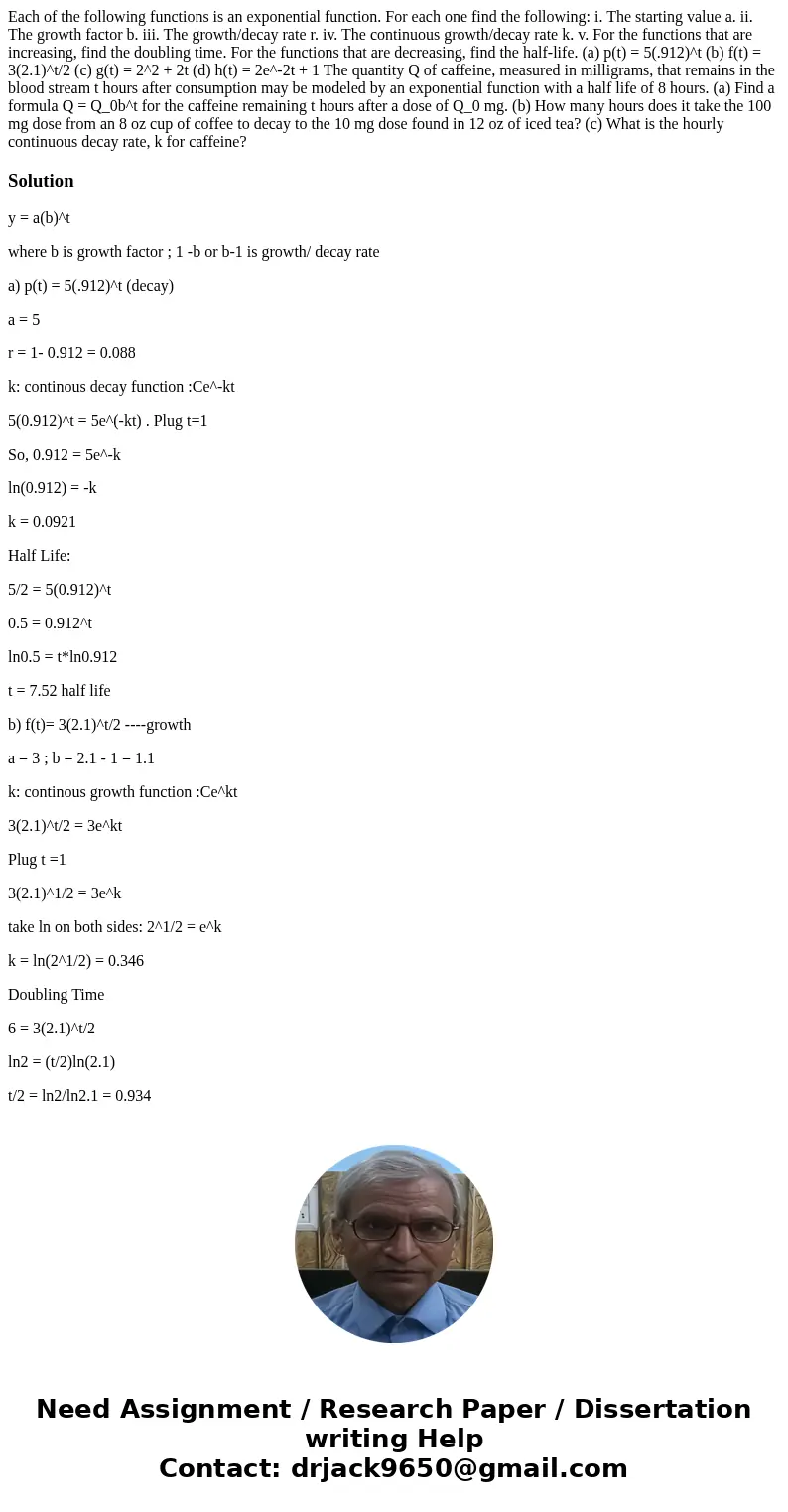Each of the following functions is an exponential function F
Solution
y = a(b)^t
where b is growth factor ; 1 -b or b-1 is growth/ decay rate
a) p(t) = 5(.912)^t (decay)
a = 5
r = 1- 0.912 = 0.088
k: continous decay function :Ce^-kt
5(0.912)^t = 5e^(-kt) . Plug t=1
So, 0.912 = 5e^-k
ln(0.912) = -k
k = 0.0921
Half Life:
5/2 = 5(0.912)^t
0.5 = 0.912^t
ln0.5 = t*ln0.912
t = 7.52 half life
b) f(t)= 3(2.1)^t/2 ----growth
a = 3 ; b = 2.1 - 1 = 1.1
k: continous growth function :Ce^kt
3(2.1)^t/2 = 3e^kt
Plug t =1
3(2.1)^1/2 = 3e^k
take ln on both sides: 2^1/2 = e^k
k = ln(2^1/2) = 0.346
Doubling Time
6 = 3(2.1)^t/2
ln2 = (t/2)ln(2.1)
t/2 = ln2/ln2.1 = 0.934
t = 1.87 (doubling time)
c) g(t) = 2^(2+2t) = 4(2^2t) = 4(4)^t Growth
a = 4 ; b = 4 -1 = 3
k: continous growth function :Ce^kt
4(4)^t = 4e^kt ; Plug t=1
4*4 = 4e^k
4 = e^k
ln4 = k ; k =1.386
Doubling time:
g(t) = 4(4)^t
2 = 4^t ; t= ln2/ln4 = 0.5
t = 0.5
d) h(t) = 2e^(-2t+1)
= 2e^-2t*e = 2e*e^-2t = 5.43e^-2t
h(t) = 5.43e^-2t ---- Decay
So, a = 5.43
k = -2
h(t) = 5.43(e^-2)^t = 5.43(0.135)^t
b = 1-0.135 = 0.865
Half Time:
ln0.5 = t*ln(0.135)
t =0.346


 Homework Sourse
Homework Sourse